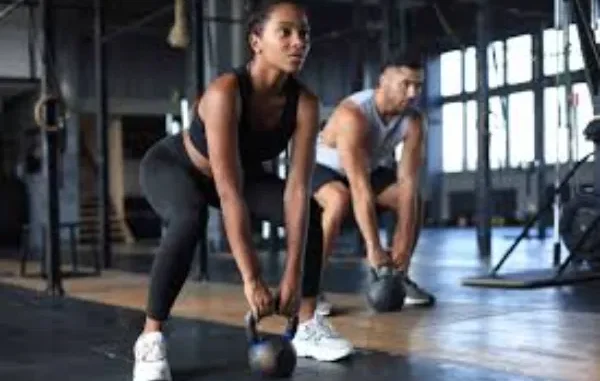
https://unsplash.com/photos/clear-tea-cup-on-brown-surface-mRaNok_Ld6s
The idea of incorporating cannabis into a fitness routine may seem unconventional to some, but recent research and anecdotal evidence suggest that cannabis can play a beneficial role in enhancing various aspects of physical fitness. From pain management and recovery to improving focus and endurance, cannabis, particularly its active compounds THC (tetrahydrocannabinol) and CBD (cannabidiol), can offer a range of benefits that support a healthy, active lifestyle. This article explores how cannabis can be effectively integrated into your fitness regime to help you achieve your wellness goals.
1. Pain Relief and Inflammation Reduction
One of the most significant ways cannabis can support your fitness regime is through its ability to manage pain and reduce inflammation. Exercise, especially intense or high-impact activities, can lead to muscle soreness, joint pain, and inflammation. These post-workout discomforts can hinder your ability to maintain a consistent workout routine and reach your fitness goals.
- How It Works: THC and CBD interact with the body’s endocannabinoid system (ECS), which plays a key role in regulating pain and inflammation. CBD, in particular, has anti-inflammatory properties that can help reduce swelling and promote faster recovery. THC, on the other hand, can provide analgesic effects, helping to alleviate acute pain.
- Usage: Cannabis can be consumed in various forms, including oils, edibles, or topicals. Applying a CBD-rich cream or oil directly to sore muscles can provide localized relief, while ingesting or vaping cannabis can offer broader pain management. People also try vaping with a weed pen for quick relief.
Incorporating cannabis for pain relief can help you stay active and reduce the downtime needed for recovery, allowing for more consistent training sessions.
2. Enhanced Recovery and Muscle Relaxation
Recovery is a crucial part of any fitness regime, as it allows your muscles to repair and grow stronger. Without adequate recovery, you risk overtraining, which can lead to injury and burnout. Cannabis, particularly CBD, can aid in the recovery process by promoting relaxation and improving sleep quality.
- How It Works: CBD’s calming effects can help reduce muscle tension and promote relaxation, which is essential for recovery. Additionally, both THC and CBD have been shown to improve sleep quality, which is vital for muscle repair and overall recovery.
- Usage: Taking a CBD or THC-infused product in the evening can help you unwind and prepare for a restful night’s sleep. Alternatively, using a CBD vape or tincture post-workout can help soothe sore muscles and reduce the physical and mental stress of a tough workout.
By supporting better recovery, cannabis can help you maintain a consistent fitness routine, ensuring that you can train harder and more effectively over time.
3. Improved Focus and Mind-Muscle Connection
Maintaining focus and a strong mind-muscle connection is essential for effective workouts, especially in activities that require precision and concentration, such as weightlifting, yoga, or martial arts. Some users find that cannabis, particularly strains or products high in THC, can enhance focus and mindfulness during exercise.
- How It Works: THC, in moderate doses, can stimulate the brain’s reward system, leading to heightened focus and a sense of euphoria. This can enhance your workout experience, making it easier to connect with your body and stay present during your exercises.
- Usage: Microdosing with a low-THC product before a workout can help enhance focus without causing impairment. It’s important to find the right dose that works for you, as too much THC can have the opposite effect, leading to distraction or lethargy.
When used mindfully, cannabis can help you stay engaged during your workouts, improving the quality and effectiveness of your training sessions.
4. Boosting Endurance and Reducing Fatigue
Endurance athletes, such as runners and cyclists, often seek ways to extend their performance while reducing fatigue. Some research suggests that cannabis, particularly CBD, may help in managing the physical and mental fatigue associated with prolonged exercise, allowing athletes to push their limits.
- How It Works: CBD has been shown to have anti-anxiety effects, which can help manage the mental fatigue that comes with long workouts. Additionally, its anti-inflammatory properties can help reduce muscle soreness, allowing for longer periods of activity.
- Usage: Taking a CBD supplement before endurance activities can help you manage fatigue and maintain focus. For those who prefer THC, a small dose before a workout may enhance the runner’s high, making the exercise feel more enjoyable and less taxing.
By incorporating cannabis into your endurance training, you can potentially extend your performance and improve your overall stamina.
5. Supporting Weight Management
For those focused on weight management, cannabis can offer some surprising benefits. While cannabis is often associated with increased appetite (the munchies), certain strains and products can actually help in regulating metabolism and controlling hunger.
- How It Works: CBD has been shown to influence the body’s fat browning process, where white fat is converted into brown fat, which is more metabolically active. Additionally, certain cannabis strains that are higher in THCV (tetrahydrocannabivarin) have been found to suppress appetite, helping with weight management.
- Usage: Incorporating a CBD supplement into your daily routine can help support metabolic health. For appetite control, consider using cannabis strains or products that are higher in THCV.
When used strategically, cannabis can complement your weight management efforts, helping you achieve and maintain a healthy body weight.
Final Thoughts
Cannabis offers a range of potential benefits that can enhance various aspects of your fitness regime, from pain management and recovery to focus and endurance. However, it’s important to approach cannabis use with mindfulness and an understanding of how it affects your body. Start with low doses, particularly if you’re new to cannabis, and pay attention to how it influences your workouts and recovery.
Consult with a healthcare professional before adding cannabis to your fitness routine, especially if you have any underlying health conditions or are taking other medications. With the right approach, cannabis can be a valuable tool in achieving your fitness goals and maintaining a healthy, active lifestyle.






Leave a Reply